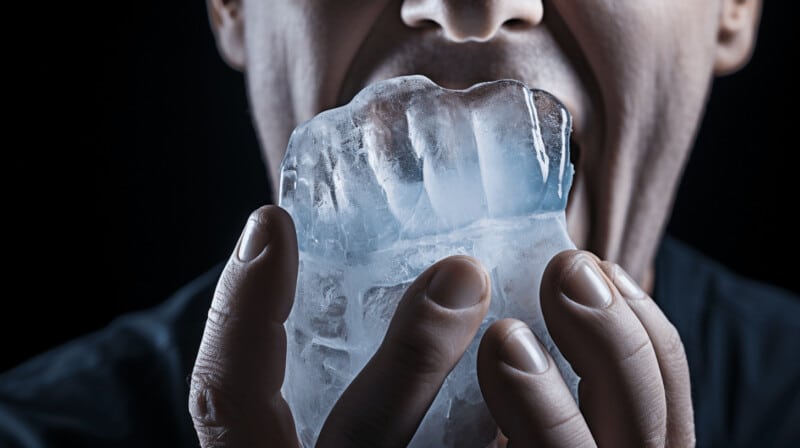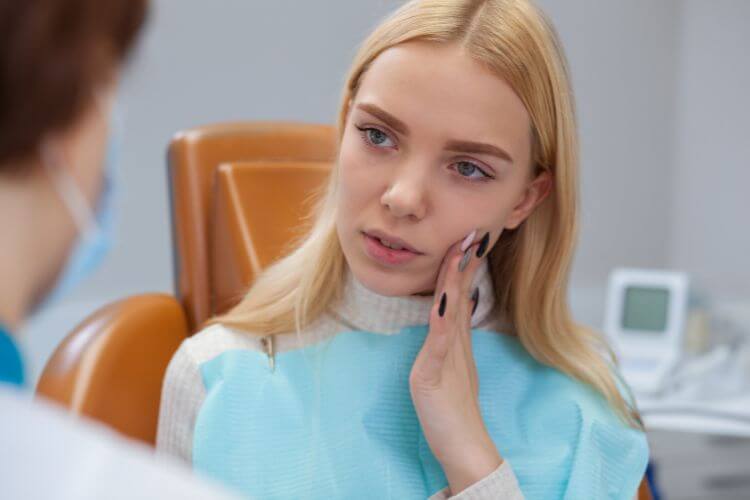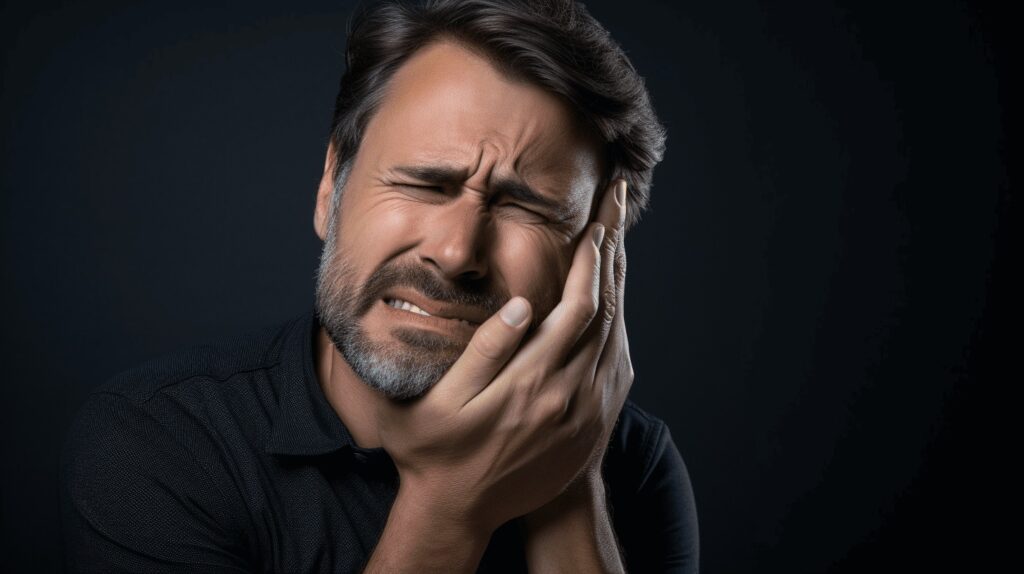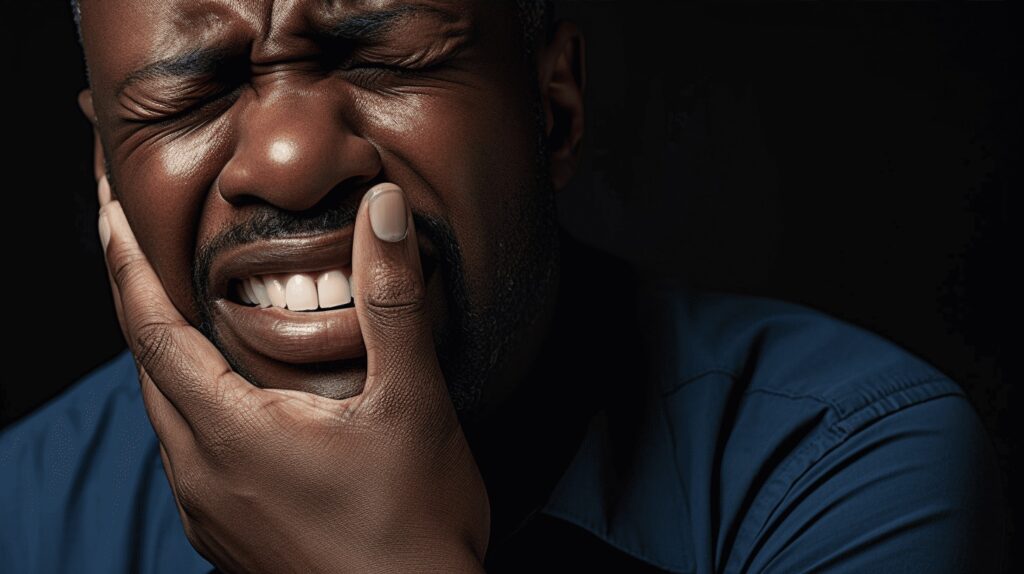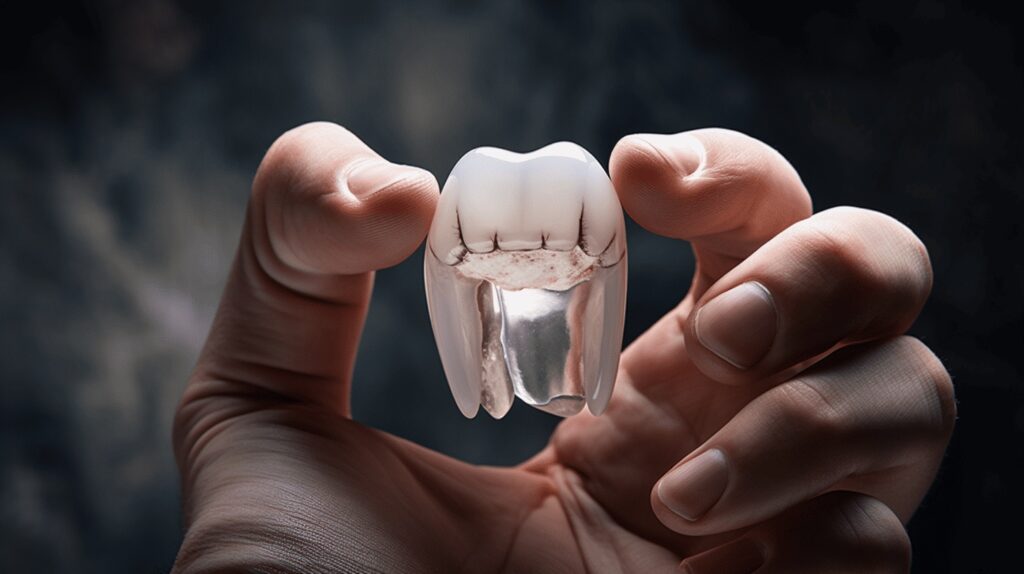Brush your teeth, floss regularly, and avoid sugary snacks — we’ve all heard these instructions countless times.
However, despite our best efforts, dental emergencies can strike when we least expect it. No one ever plans to chip, crack or lose a tooth, but fortunately, there are effective ways to handle these crises. Nerves often run high during dental emergencies due to the sudden pain and scared feelings, leading to complications that could potentially worsen the situation.
For that reason, let’s lend you a helping hand 🤝 by providing insights on what to do when dental emergencies arise.
In this comprehensive guide, we will navigate through the importance of oral health, prevalence of oral diseases worldwide 🌍, and untold ways that dental emergencies can impact productivity at work and school.
We’ll also present an evaluation of hospital emergency department visits and underline the importance of regular dental checkups as a preventive measure. With the recent havoc wrought by COVID-19, we’ll touch on how the pandemic has further affected our oral healthcare routines and defined what dental emergencies require immediate attention.
Get comfy and grab a cuppa ☕ because this article isn’t just about dry dental facts. It’s about holistic oral health, and how understanding it can help prevent those moments of dental panic and save your beautiful smile 😄.
Table of Contents
The Importance of Oral Health
Think about the many things you enjoy thanks to your mouth: the sensation of flavors when feasting on your favorite dish, the joy of singing your favorite tune, or the pleasure of a simple conversation with a friend or loved one. 😋🎵🗣️
But did you know that the health of your mouth, teeth, and gums can affect your general health? You guessed it right! Poor oral hygiene could lead to various complications like gum disease, tooth decay, and even more severe health problems such as heart disease. It’s an alarming fact that colossal 87% of adults and an incredibly high 86% of children experience healthy teeth and gums. Therefore, this underlines the significance of committing to vigilant oral care habits.
However, don’t be disheartened! With specific practices and simple adjustments to your daily routine, maintaining good oral health can be as easy as pie.
Oral Health in Adults
As adults, we may sometimes overlook the importance of regular brushing and flossing, mainly due to our busy lives. However, neglecting these simple practices could lead to a multitude of dental problems that are often too daunting and expensive to treat.
It’s not just about avoiding the discomforts of toothache or the embarrassment of bad breath either. Studies have suggested a link between oral health and serious health conditions, including heart disease, diabetes, and even dementia.
This isn’t to scare you, but to highlight the vital importance of oral hygiene in our lives. By brushing our teeth twice a day, flossing regularly, and scheduling regular dental checkups, we can maintain the health of our mouth and the entire body. Plus, you can head over to our page on Maintaining Good Oral Health which explores the best practices for adult oral care.
Oral Health in Children
In the case of children, oral care should start even before their first tooth emerges. It’s crucial for parents to adopt healthy oral hygiene habits for their kids from the very beginning, setting a strong foundation for a lifetime of good oral health. 😁
Some may think that primary teeth are not as vital since they eventually fall out. However, research shows that there’s a troubling 46% of children aged 2-19 dealing with untreated dental caries in one or more teeth, emphasizing the necessity for immediate and practical oral care methods for our young ones.
Oral health plays a critical role, beyond just ensuring a bright and beautiful smile. It affects nutrition, speech development, and even social interaction, particularly for children. Thus, assisting your kids in developing healthy oral care habits, like brushing twice a day and visiting the dentist regularly, can make all the difference in their lives.
So, never underestimate the power of a healthy mouth! It’s not just about having a radiant smile; it’s also about ensuring your overall well-being and leading a healthy and fulfilling life. Remember, oral health is more significant than you might think! 😉
Prevalence of Oral Diseases Worldwide
Oral health is a critical aspect of overall wellness often overlooked in the global health conversation. Yet, the prevalence of oral diseases worldwide cannot be underestimated. Believe it or not, over half of all adults in the World Health Organization (WHO) European Region suffered from a major oral disease in 2019. 😮
Oral diseases encompass a broad spectrum of conditions that affect the mouth and nearby structures. These include-
- Tooth decay
- Gum diseases like periodontitis and gingivitis
- Dental erosion
- Oral cancer
- Oral infectious diseases including HIV/AIDS oral manifestations and herpetic infections
Undeniably, the statistics indicate a pressing need for a greater focus on prevention and more inclusive oral health policies across the globe. As things stand, the sheer scale of the problem is equivalent to a health crisis.
But why are oral diseases so broadly prevalent? Certain risk factors contribute heavily to the rise of oral health issues. They include:
- Poor Oral Hygiene: This is quite possibly the most critical factor contributing to oral diseases. Irregular brushing habits, neglecting to use dental floss, and missing regular dental check-ups all accelerate the progression of oral diseases. 😷
- Tobacco Use: Chewing or smoking tobacco is a leading cause of oral cancer and gum diseases. Research indicates that tobacco use is directly linked to around 50% of global cases of oral cancer. 🚬
- Alcohol Consumption: The heavy drinking culture prevalent in many societies leads to substantial oral health problems. Alcohol dehydrates and damages oral tissue, creating conditions perfect for oral disease pathogens. 🍷
- Unhealthy Diet: Foods high in sugar contribute to tooth decay, and a diet deficient in essential vitamins and minerals can also exacerbate gum diseases. 🍭
Without a doubt, these statistics represent a persuasive wake-up call for populations worldwide. If we’re to tackle the prevalence of oral diseases effectively, we need a well-coordinated approach. This involves enhancing oral health literacy among the general public, instituting robust preventative measures, and promoting healthier lifestyle choices.
The fight against the prevalence of oral diseases worldwide isn’t just about healthier mouths—it’s about healthier lives. Let’s not forget what an old saying reminds us, ❝A healthy mouth is a mirror to a healthy body❞.
Extra information: Over half of all adults in the WHO European Region had a major oral disease in 2019.
Impact of Dental Emergencies on Productivity
If there’s one thing we don’t usually consider when tallying up lost productivity, it’s the impact of dental emergencies. However, statistics tell a different story. Over 34 million school hours and a staggering $45 billion in productivity is lost each year due to dental emergencies. Let’s take a closer look at how unexpected teeth troubles can bite into your workflow.
Dental emergencies, such as severe toothaches, chipped or broken teeth, can strike at the most inconvenient times. Moving aside the immediate discomfort and pain, they carry with them a host of other complications:
- Unexpected Appointments: Emergency dental appointments often need to be scheduled during working hours, which means hours away from school or work. Plus, you might need follow-up appointments, which can further drain productivity.
- Healing Time: Sure, your dentist might have fixed up your mouth, but your body needs time to recover. This could mean anything from a few hours to a couple of days where you’re not at your best, thus hampering productivity.
- Mental Impact: The distress and anxiety associated with dental emergencies can negatively influence concentration levels, leading to subpar performance at work or school.
“Tooth troubles don’t just hurt your mouth — they also hurt your productivity.”
Of course, we’d all love a world of perfect dental hygiene where cavities and accidents are figments of the imagination. However, reality hits hard with the bill of lost productivity running into billions annually.
The key takeaway from this? Don’t take your dental health for granted. Regular checkups, adhering to a disciplined oral health routine, and timely interventions can save you not only a lot of pain and money but also precious, irreplaceable time. After all, as rightly said, time lost can never be found again. Let’s aim for those smiles, not just for their dazzle, but for the productive hours they save us. 😀 It’s high time we sink our teeth into better dental health care practices.
Evaluation of Hospital Emergency Department Visits
Our teeth are a crucial part of our everyday lives. From helping us savor our meals to facilitating speech, they serve a multitude of purposes. However, dental emergencies know no bounds, and a toothache can indeed be as excruciating as any other medical emergency. But how frequently do people have to dash to the hospital’s emergency department just because of dental issues?
The stats may surprise you! Let’s dive into some of them:
US Estimated Visits per Year
In the US, the rate of hospital visits due to dental pain is bigger than you might think. Nearly 2 million visits to emergency departments occur annually purely on the grounds of dental pain. Think about that for a moment – around two million people experience dental discomforts so severe that they need urgent professional attention. That’s a significant number of people, which underscores the necessity of advocating for more regular dental check-ups.
Veterans’ Dental Care Visits in Fiscal Year
When it comes to our brave veterans, they’re not far behind in facing dental emergencies. Approximately 690,000 veterans received dental care in fiscal year 2023 through the VA dental care benefits program alone. A rousing round of applause to the tireless medical professionals who made this possible 👏, and a reminder of the importance of such programs which provide much-needed dental care to those who served us.
Non-traumatic Dental Condition Visits in the US
Separating dental issues from traumatic incidents unveils yet another striking statistic. Close to 2.4 million non-traumatic dental condition visits take place annually in emergency departments across the US. This category excludes conditions resulting from accidents or physical injuries, showcasing the considerable number of citizens struggling with inherent dental conditions.
Dental Clinic Emergency Visits in Sweden
Switching the focus across the pond to Sweden, the number of dental clinic emergency visits was equally concerning in 2022. The range varied vastly, from around 4,000 to approximately 33,000 per age group. 🇸🇪 Clearly, dental emergencies don’t discriminate based on geography!
While these figures might seem daunting at first glance, they serve to underline a key message: dental care is an essential component of overall healthcare. Regular dental check-ups can often help detect problems at an early stage, potentially saving you an unwelcome trip to the emergency department.
Investing in oral health is investing in overall health. Keep smiling, and keep those pearly whites in check! 😃👩⚕️
Importance of Regular Dental Checkups
There’s just something so satisfying about that squeaky-clean feeling after a dental checkup, right? Not to mention the minty fresh breath! 🦷 Yet, believe it or not, a staggering 42% of adults admit that they don’t regularly visit the dentist, despite bi-annual checkups being crucial to preventing major dental problems. Let’s break down why neglecting this simple preventive measure could be a grave mistake.
The Power of Regular Checkups
One might brush, floss, and rinse diligently without fail, but is that enough? While it’s a great start, the truth is, daily home care alone can’t always ward off dental diseases.
Regular checkups are essential because:
- Professional Cleaning: You wouldn’t believe the gunk that builds up in hard-to-reach corners! A thorough professional cleaning eradicates hidden plaque and tartar, nullifying the risk of cavities and gum diseases.
- Early Detection: Oral cancer, gum disease, cavities – catching them early can make a world of difference. A routine visit lets your dentist nip potential problems in the bud so they don’t turn from a minor annoyance into a major ordeal.
- Keeping Problems at Bay: With age may come wisdom, but it might bring a set of teeth issues as well. Regular checkups can help address problems unique to older adults like tooth loss and dry mouth.
Dental Health: The backdrop to your Smile
Remember, dental health isn’t just about maintaining a gleaming set of chompers; it’s about your overall wellbeing. Gum diseases can play a role in stroke, diabetes, and heart diseases. Yes, you read that right. A healthy mouth is more than just a pretty smile, it’s a window to your overall health.
For the busy professionals out there, preventative dental care needn’t be a hassle. Look into Preventative Dentistry for Professionals that tailor oral care routines to fit into your on-the-go lifestyle.
In the grand scheme of things, the question must not be, “Why should I go for regular dental checkups?” but rather, “Why wouldn’t I?” Come on folks! Let’s commit to those twice-yearly dental checkups and smile our way to vibrant health. Don’t neglect your pearly whites; they deserve your care and attention. Happy brushing! 😁
Impact of COVID-19 on Oral Healthcare
As we navigate the uncharted waters of the COVID-19 pandemic, the world of oral healthcare has undoubtedly felt its impact. In our new reality, face masks, sanitizing stations, and social distancing have become a familiar part of our day-to-day lives. Unfortunately, the pandemic’s effects extend beyond daily inconveniences and have had profound ramifications on oral healthcare.
You see, the indefinite closure of about 198,000 dental offices worldwide meant that millions of patients were left without access to essential dental care. Consequently, this interruption resulted in delayed diagnoses of severe oral healthcare conditions and a significant increase in patients’ discomfort and pain. 😔 Let’s dive deeper into the understanding of the impact of the novel virus on oral healthcare.
Implication on Dental Professionals
A core component of the impact of COVID-19 on oral healthcare pertains to the professionals in the field themselves. The personal and professional lives of dental practitioners were turned upside down. Here are some key points to consider:
- Dental procedures involve close proximity to patients’ mouths, increasing the risk of virus transmission.
- Many dental professionals grappled with the fear and anxiety of exposure to the virus.
- There was an economic impact due to office closure, with financial hardship affecting both dental business owners and their staff.
Adherence to New Safety Protocols
In response to the risks posed by the pandemic, several new safety protocols were put into place in dental settings. These protocols included:
- Extensive usage of personal protective equipment (PPE), including face shields, gowns, masks, and gloves.
- Redesigning of dental offices to accommodate social distancing regulations.
- Enhanced sanitization practices, including disinfecting surfaces between patients.
Effect on Patients’ Oral Health
The closure of dental practices not only affected dental professionals but also had a considerable impact on patients.
- Routine dental check-ups were canceled or postponed, leading to delayed diagnoses of oral health conditions.
- Patients experienced increased anxiety about going to dental appointments due to fear of exposure.
- For many, increased snacking during lockdowns and stress-led bruxism (teeth grinding) resulted in deteriorating oral health.
Covid-19 triggered a seismic shift in oral healthcare worldwide. The pandemic underscored the urgency to reinforce and enhance safety measures within dental settings, both for the wellbeing of dental practitioners and for continued delivery of high-quality care to their patients. As the world gradually gets back to normal, the events of the past year serve as a reminder that oral healthcare, like all aspects of our lives, is not immune to extraordinary global occurrences. Moving forward, we must ensure the lessons are well-learned, and the oral healthcare sector is better prepared to navigate any future challenges. 😷🦷🌍
Defining Dental Emergencies
In our everyday lives, dental emergencies can take us by surprise. Unforeseen toothaches, infections, and other oral issues can pop up and immediately disrupt our routines. But, when is it a real dental emergency that requires immediate attention, and when is it a minor issue that you can schedule an appointment for later? To differentiate these dental predicaments, we need to understand what defines a dental emergency.
Interestingly, the American Dental Association has a clear-cut definition. They categorize dental emergencies as potentially life-threatening conditions that necessitate immediate treatment. This means situations where there’s unbearable pain, severe infections posing a risk of spreading, or injuries that can lead to permanent damage or disfigurement if not treated promptly.💡
Take note, too, that dental emergencies are not an unusual occurrence in dental offices. Dental professionals confront such medical emergencies every 1-2 years, on average. These situations reinforce the importance of being equipped, both knowledgeably and practically, on How to Handle Dental Emergencies. After all, prompt and appropriate responses to dental emergencies can significantly impact the outcome.
So, understanding what constitutes a dental emergency is our first step in effectively handling such scenarios. The next time you’re not sure if you’re dealing with a dental emergency, consider these criteria, and don’t hesitate to reach out to your dental healthcare professional when in doubt. A little alertness and know-how on your part may save you untold discomfort, risk, and even your smile. Remember, your health is in your hands—and your mouth is part of it! 🩺🦷
Conclusion
Navigating the world of oral health can sometimes feel like untangling a complex web. There’s an entire universe in our mouths that requires attention, care, and regular maintenance. Dental emergencies are a stark reminder of the importance of oral health. From debilitating toothaches that can hinder productivity to life-threatening infections, these incidents highlight the necessity of regular dental checkups and prompt attention to oral discomfort.
At Wilshire Smile Studio, we understand the significance of immediate and effective response when a dental emergency strikes. Our experienced professionals are not only armed with the latest technology, but also the compassion to handle your emergency with the utmost care and efficiency. Whether it is preventative dentistry, Invisalign, teeth whitening, or handling emergency dental situations, our practice is dedicated to ensuring your oral health is optimal and your smiles, beautiful.
We wouldn’t want an unexpected dental emergency to meddle with your key moments or daily activities. Our commitment remains to break down the complexity of oral health to simple, manageable steps while offering affordable prices and customized financing options. Your perfect smile shouldn’t just be a dream, but a reality. So let’s stand together in facing any dental challenges head on and keep those beautiful smiles shining. Because every smile matters, and we’re here for yours.
Book your free consultation with us online or call (323) DENTIST (323-336-8478) today.
Frequently Asked Questions
1. What are common dental emergencies?
Common dental emergencies include toothaches, chipped or broken teeth, knocked-out teeth, abscesses, and dental infections.
2. What should I do if I experience a toothache?
If you experience a toothache, rinse your mouth with warm water, use dental floss to remove any food particles, and apply a cold compress to reduce swelling. Contact your dentist for an appointment as soon as possible.
3. What should I do if my tooth gets knocked out?
If your tooth gets knocked out, carefully rinse it with water without scrubbing the root, try to reinsert it into the socket, and hold it in place with gauze or a clean cloth. If this isn’t possible, place the tooth in a container of milk and seek immediate dental care.
4. What are the signs of a dental abscess?
Signs of a dental abscess include severe toothache, swollen face or gums, fever, a foul taste in the mouth, and difficulty swallowing or breathing. You should seek immediate dental attention if you suspect a dental abscess.
5. How can I prevent dental emergencies?
To prevent dental emergencies, maintain good oral hygiene by brushing twice a day, flossing daily, and visiting your dentist for regular check-ups. Avoid chewing on hard objects, wear a mouthguard during sports activities, and promptly address any dental issues, such as cavities or cracks.


